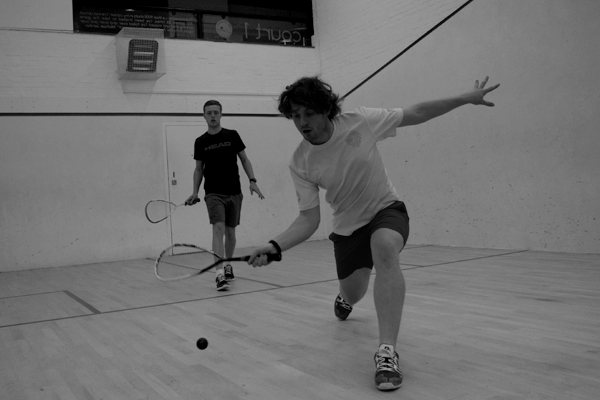We’ve previously written about handling a match when you are leading 2-0, and another really common and pivotal situation during a match is when the match is tied at 1 game each.
Knowing when to push
When the match is tied at 1-1, the third game becomes vital for both players. Lose, and you need to win 2 games in a row for the first time in the match in order to win. It’s not just a physical challenge but a mental one as well. If the player losing 2-1 is also struggling physically or not as fit as the other player, the disappointment of losing the third and facing up to needing to win two games in a row might be too much for them and they might struggle to find anything like their best.
This is why you need to throw everything you’ve got at your opponent at the start of the third game. Before you go on court for the third game, set targets for yourself or remind yourself of how you want to play. Remind yourself, and force yourself if necessary, to push high up the T-Position, to volley and take the ball early, and tell yourself that you will not let them win two rallies in a row or allow the ball to bounce twice. If you work better with targets, aim to keep them at 0-0 for as long as possible, or see how few points you can limit them to. Once you are in the game, remind yourself of your goal or target between rallies but do not dwell on the actual score – let that take care of itself.
Even doing this just for the first half of the third game might be enough to demoralise your opponent or give you an unassailable lead.
Investing in the third for reward in the fourth
If you don’t go on the offensive in the third, and instead maintain a steady level – or worse drop off – you will give your opponent a big chance to go 2-1 up if they come out attacking, which is a position you really don’t want to allow them to get into. Working yourself as hard as possible in the third is often a good investment, as if you can win a really tough third game to go 2-1 up, the extra effort will be rewarded when your opponent is worn out physically, and therefore not capable of being truly competitive or dangerous in the fourth game.
If you are in a match poised at 1-1, double your efforts. Every game is always important but leaving yourself needing to win back to back games deep into the match is not a position you want to be in. You can also deal a devastating blow to your opponent and leave them physically unable to put as much into the fourth game, which when combined with the disappointment of losing the third, can allow you to ease to victory in the fourth providing you maintain your concentration.
Related posts:
Being 2-0 up: The 2-0 up syndrome

Leave a Reply